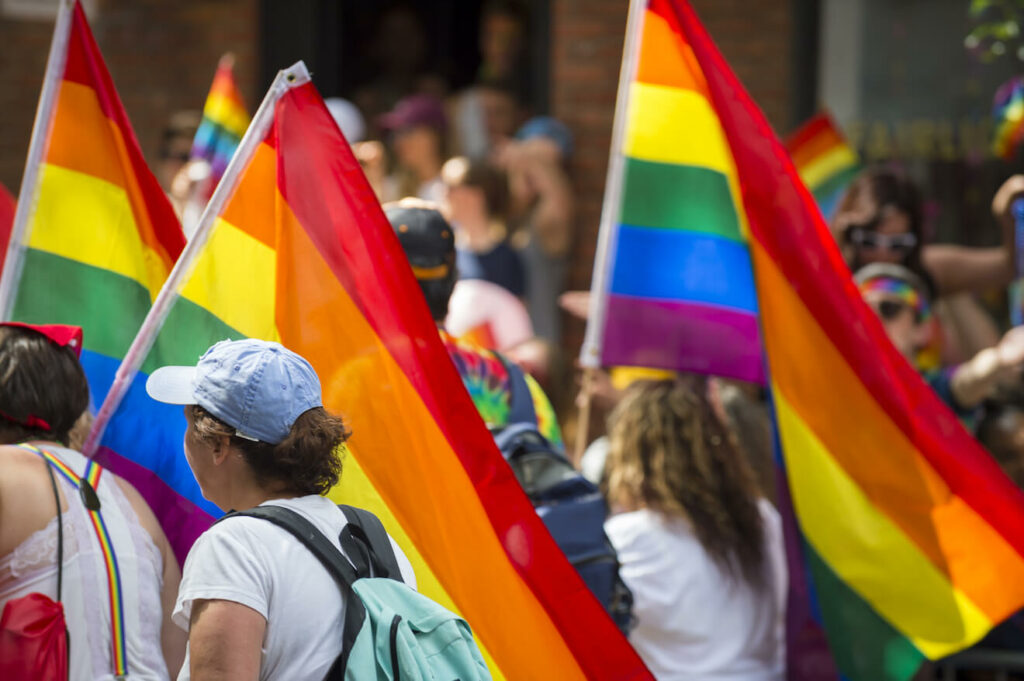LGBTQ therapy, also known as queer therapy or gay-affirmative therapy, is a form of counseling that specifically caters to the needs of lesbian, gay, bisexual, transgender, and queer individuals. It is a supportive and affirming approach that recognizes and respects diverse sexual orientations and gender identities. In this article, we will explore the importance of LGBTQ therapy, discuss various therapy options available, and provide guidance on finding LGBTQ therapy near you.
Contents
- 1 Understanding the Importance of LGBTQ Therapy
- 2 Types of LGBTQ Therapy
- 3 Finding LGBTQ Therapy Near You
- 4 Questions to Ask When Choosing an LGBTQ Therapist
- 5 LGBTQ Therapy Techniques and Approaches\
- 6 The Role of LGBTQ Therapy in Mental Health and Well-being
- 7 Overcoming Stigma and Seeking LGBTQ Therapy
- 8 Conclusion
Understanding the Importance of LGBTQ Therapy

LGBTQ therapy, also known as queer therapy or affirmative therapy, is a specialized form of therapy that addresses the unique mental health needs and experiences of lesbian, gay, bisexual, transgender, and queer individuals. It plays a crucial role in supporting the psychological well-being of LGBTQ individuals and has several important aspects to consider:
- Affirmation and Validation: LGBTQ therapy provides a safe and non-judgmental space for individuals to explore their identities, experiences, and concerns. Affirming and validating a person’s sexual orientation or gender identity is essential for their mental health and self-acceptance.
- Identity Exploration and Development: Many LGBTQ individuals face challenges in understanding and accepting their sexual orientation or gender identity due to societal pressures, discrimination, and internalized stigma. LGBTQ therapy helps individuals explore and develop their identities in a supportive environment, facilitating self-discovery, self-acceptance, and a positive sense of self.
- Coping with Minority Stress: LGBTQ individuals often experience minority stress, which stems from societal prejudice, discrimination, and stigma. This stress can lead to mental health issues such as anxiety, depression, and substance abuse. LGBTQ therapy helps individuals develop coping strategies and resilience to navigate these challenges effectively.
- Coming Out Support: Coming out, the process of disclosing one’s sexual orientation or gender identity to others, can be a significant milestone for LGBTQ individuals. LGBTQ therapy provides guidance, support, and a safe space to explore the coming out process, address concerns and develop strategies for managing reactions from family, friends, and society.
- Relationship and Family Support: LGBTQ therapy also addresses relationship and family dynamics specific to the LGBTQ community. It helps individuals and couples navigate challenges related to same-sex relationships, open relationships, non-traditional family structures, and parenting. It promotes healthier communication, understanding, and acceptance within relationships and families.
- Trauma and Mental Health Concerns: LGBTQ individuals may experience higher rates of trauma, mental health disorders, and substance abuse compared to the general population. LGBTQ therapy assists in identifying and addressing these issues, providing evidence-based treatments tailored to the individual’s needs.
Types of LGBTQ Therapy
There are various types of LGBTQ therapy approaches that mental health professionals may utilize to support LGBTQ individuals. Here are a few examples:
- Affirmative Therapy: Affirmative therapy, also known as LGBTQ-affirmative therapy or queer-affirmative therapy, is an approach that emphasizes the acceptance, validation, and support of an individual’s sexual orientation, gender identity, and expression. It aims to create a safe and non-judgmental space for LGBTQ individuals to explore their identities and address any related mental health concerns.
- Cognitive-Behavioral Therapy (CBT): CBT is a widely used therapeutic approach that focuses on examining and modifying negative thought patterns and behaviors. In the context of LGBTQ therapy, CBT can help individuals challenge internalized stigma, develop coping strategies for minority stress, and address mental health conditions such as anxiety or depression.
- Family Therapy: Family therapy involves the participation of family members or chosen support systems in the therapeutic process. In LGBTQ-specific family therapy, the focus is on addressing issues related to acceptance, communication, and understanding within families of LGBTQ individuals. It aims to promote healthy family dynamics, provide education, and support the individual’s well-being.
- Group Therapy: Group therapy brings together multiple individuals who share common experiences or identities. LGBTQ group therapy provides a supportive environment for individuals to connect, share their stories, and learn from one another. It can address topics such as coming out, identity exploration, relationship dynamics, and coping strategies.
- Trauma-Informed Therapy: LGBTQ individuals may experience higher rates of trauma due to discrimination, violence, or rejection. Trauma-informed therapy focuses on understanding the impact of trauma and providing specialized support to individuals who have experienced it. It emphasizes safety, trust-building, and empowering the individual to heal and recover.
- Couples Therapy: Couples therapy for LGBTQ couples aims to address relationship dynamics, communication challenges, and conflicts that may arise in same-sex relationships. It helps couples strengthen their bond, resolve conflicts, and navigate specific issues related to their LGBTQ identities.
Finding LGBTQ Therapy Near You

Finding LGBTQ therapy near you can be an important step towards accessing the support and resources you need. Here are some ways you can locate LGBTQ-affirming therapists in your area:
- Online Directories: There are online directories specifically designed to help individuals find LGBTQ-affirming therapists.
- LGBTQ Community Centers: Local LGBTQ community centers often have resources and referrals for LGBTQ-affirming therapists in the area. You can search for community centers near you and inquire about their mental health resources.
- LGBTQ Support Organizations: Organizations focused on LGBTQ rights and support, such as The Trevor Project or LGBTQ+ advocacy groups in your region, may provide information or referrals for LGBTQ-affirming therapists.
- Online Search: You can use search engines to find therapists or counseling centers in your area. Include keywords like “LGBTQ therapy,” “queer-affirming therapist,” or “gay-friendly counselor” along with your location to narrow down the search results.
- Ask for Referrals: Reach out to friends, family members, or members of the LGBTQ community for recommendations or referrals to LGBTQ-affirming therapists they may have worked with or know about.
When you find potential therapists, it can be helpful to contact them and ask questions about their experience and expertise in LGBTQ-related issues. You may want to inquire about their training, their approach to LGBTQ-affirmative therapy, and their familiarity with the specific concerns you’d like to address in therapy. This can help ensure a good fit and increase your comfort in working with a therapist.
Questions to Ask When Choosing an LGBTQ Therapist
When selecting an LGBTQ therapist, asking the right questions can help ensure a good fit and affirming experience. Consider the following factors:
Experience and Expertise
Inquire about the therapist’s experience working with LGBTQ individuals and their familiarity with specific concerns you may have.
Affirming Approach
Ask about their therapeutic approach and how they create a safe and affirming environment for LGBTQ clients.
Confidentiality and Privacy
Discuss the therapist’s policies regarding confidentiality and how they prioritize privacy, particularly regarding sensitive LGBTQ issues.
Cultural Competency
Inquire about their training and ongoing education related to LGBTQ issues to assess their cultural competency and sensitivity.
Availability and Accessibility
Consider factors such as session availability, location, fees, and whether they offer online or in-person sessions.
LGBTQ Therapy Techniques and Approaches\

LGBTQ therapy incorporates various techniques and approaches to address the unique needs of individuals. Some commonly used therapeutic modalities include:
Cognitive-Behavioral Therapy (CBT)
CBT focuses on identifying and changing negative thought patterns and behaviors to promote positive mental health outcomes.
Acceptance and Commitment Therapy (ACT)
ACT emphasizes accepting difficult emotions and thoughts while committing to actions aligned with personal values and goals.
Narrative Therapy
Narrative therapy helps individuals explore and reframe their life stories, focusing on strengths and resilience.
Family Systems Therapy
Family systems therapy involves working with individuals and their families to improve communication, understand family dynamics, and foster healthier relationships.
Trauma-Informed Therapy
This approach recognizes and addresses the impact of trauma on mental health, emphasizing safety, empowerment, and resilience.
The Role of LGBTQ Therapy in Mental Health and Well-being
LGBTQ therapy plays a crucial role in promoting mental health and overall well-being by addressing specific challenges and providing valuable support.
Addressing Minority Stress
LGBTQ individuals often face minority stress due to prejudice, discrimination, and societal marginalization. LGBTQ therapy offers tools and coping strategies to navigate these stressors and build resilience.
Building Resilience
Therapy helps individuals develop resilience by strengthening their coping skills, fostering self-acceptance, and building supportive networks.
Navigating Identity and Self-Acceptance
LGBTQ therapy provides a safe space for individuals to explore their sexual orientation, gender identity, and overall sense of self. It supports the journey toward self-acceptance and authenticity.
Overcoming Stigma and Seeking LGBTQ Therapy

Despite the numerous benefits of LGBTQ therapy, stigma, and societal barriers may hinder some individuals from seeking help. Overcoming these challenges requires education, support, and self-advocacy.
Education and Awareness
Promoting education and awareness about LGBTQ issues can help combat stereotypes, reduce stigma, and encourage individuals to seek appropriate support.
Supportive Networks
Building supportive networks and connections within the LGBTQ community can provide a sense of belonging and empower individuals to seek therapy without fear of judgment.
Cultivating Self-Advocacy
Encouraging self-advocacy is essential for LGBTQ individuals. By empowering themselves, they can actively seek to affirm therapy and challenge any barriers they encounter.
Conclusion
LGBTQ therapy serves as a valuable resource for individuals seeking support, personal growth, and well-being. By providing a safe and affirming environment, therapy helps address the challenges faced by LGBTQ individuals and promotes mental health. If you’re looking for LGBTQ therapy near you, consider online search platforms, LGBTQ support centers, or referrals from healthcare providers. Remember to ask pertinent questions to ensure the therapist’s expertise and affirming approach aligns with your needs. Overcoming stigma and seeking LGBTQ therapy requires education, support, and self-advocacy. Embracing therapy can lead to personal growth, resilience, and a greater sense of self-acceptance.


